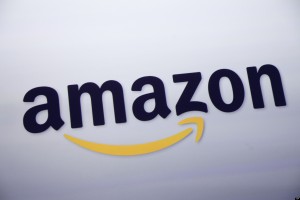
The debate over the most recent accusations about how Amazon is destroying the book industry has taken a new turn with some new arguments, all of which–yet again–have nothing more behind them than the insistence that Amazon hates books, hates authors, hates readers, and basically…hates everyone.
In a brilliant post with some actual explanation behind it, bestselling self-published and hybrid author Hugh Howey wrote on his blog that he’s been hearing the news that Amazon would be decreasing its current 70% royalty payout for the last two years. In his post, he explains that Amazon currently pays the publishers (re: authors of their self-published works) 70% of the sale price of the book, keeping 30% as the distribution fee. Howey likens that to the incredibly similar 60-40 split that publishers earned from book retailer Barnes and Noble when Howey was an employee in a physical store.
But rebuttals to Howey’s viewpoint from sites such as this one argue that Amazon is not actually a bookstore, and therefore doesn’t deserve the 30% take. It is nothing more than a website that has no overhead and no work involved in putting virtual books on non-existent shelves for its customers. (The fallacy that Amazon has no bookshelf and no overhead is laughable, considering the hundreds of thousands of employees that the retailer maintains)
Another widely dispersed viewpoint is that Amazon is edging out all of its competitors one by one, and that when it has accomplished its mission of world domination, it will drop the royalty rate it pays its authors. Again, how would this takeover of the book industry be possible, when authors can self-publish and sell their own content without Amazon’s help?
The basic assumption with all things Amazon is that we have no choice but to shop or publish with Amazon, an argument that makes its proponents look a little on the ridiculous side. Why are we wasting our breaths shouting that Amazon will ruin us, even while insisting we have no choice but to patronize them? Does Amazon control our water supply, threatening to choke us out if we fail to spend enough with our Prime memberships?
Probably the greatest thing about the current digital publishing phenomenon is the fact that authors now have actual, viable choices. Yes, Amazon controls such a major market share that not listing a book on Amazon is akin to throwing it in a box under the bed, but that is a fact that we as consumers created. If we don’t like Amazon’s business practices, we are free to avoid them. But speculating on what will happen once the end of the (retail) world occurs is pointless.
Mercy Pilkington is a Senior Editor for Good e-Reader. She is also the CEO and founder of a hybrid publishing and consulting company.